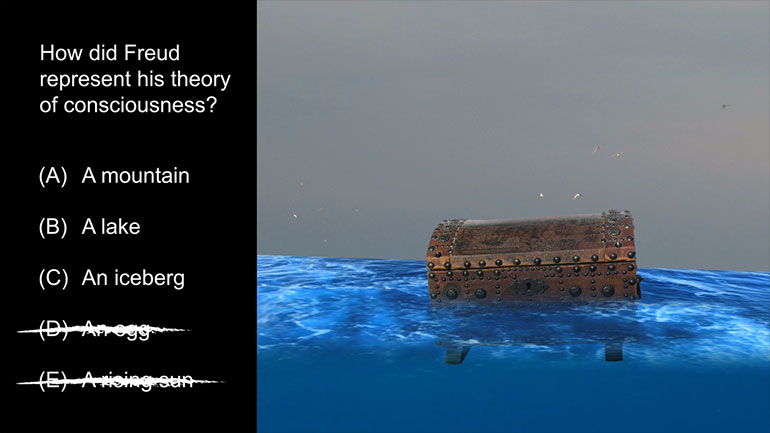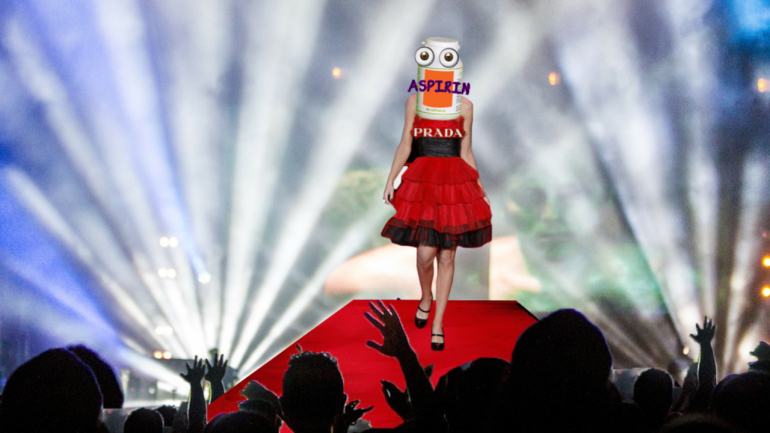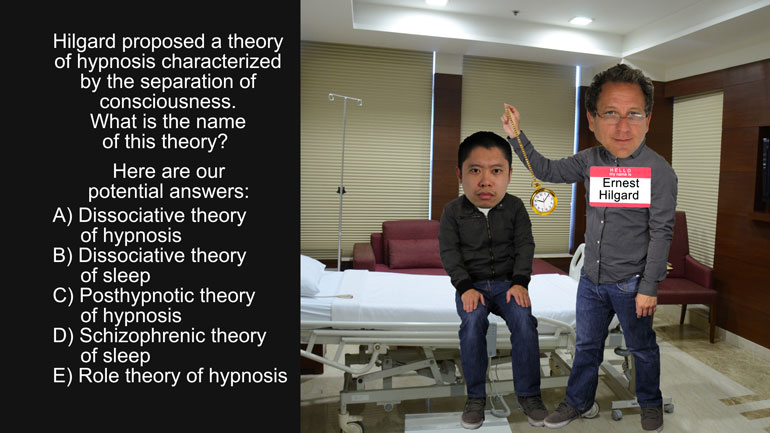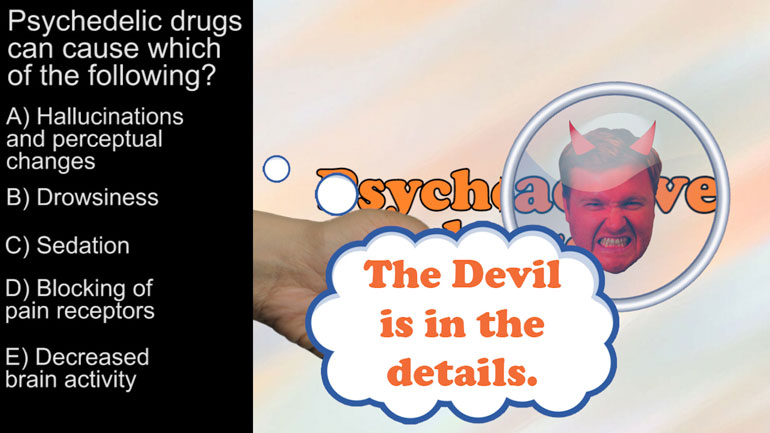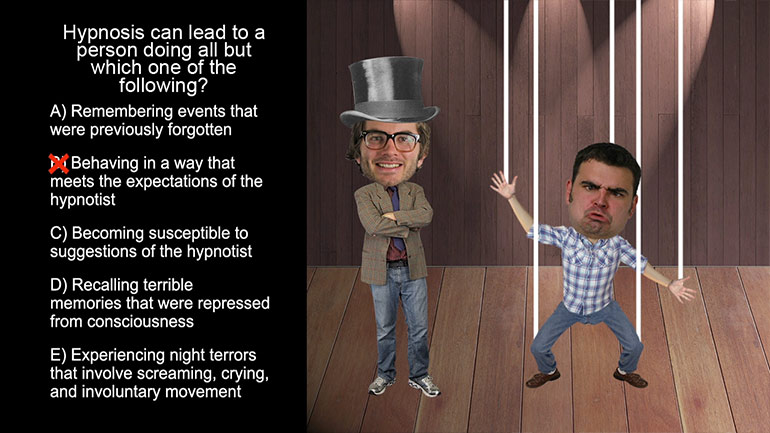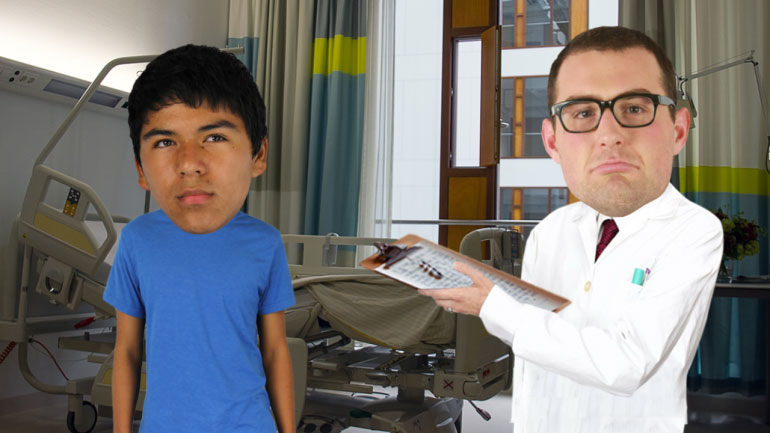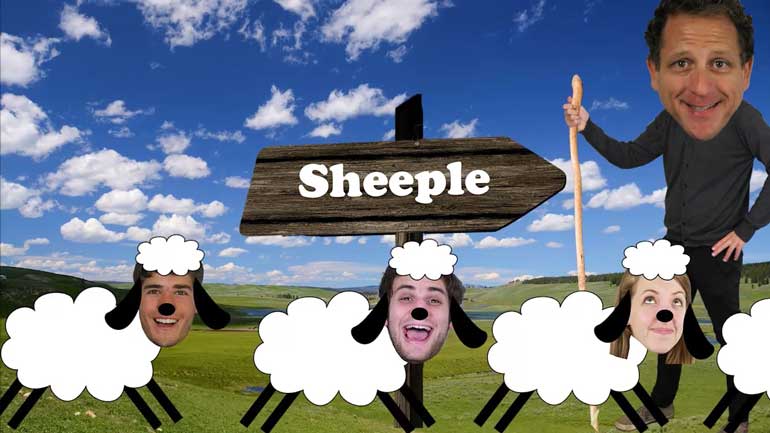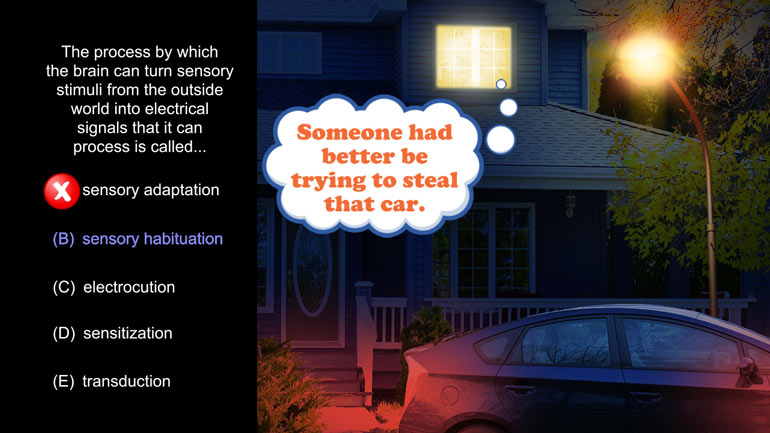ShmoopTube
Where Monty Python meets your 10th grade teacher.
Search Thousands of Shmoop Videos
States of Consciousness Videos 13 videos
AP Psychology 1.1 States of Consciousness. Who conducted research on REM sleep deprivations?
AP Psychology 3.2 States of Consciousness. Which brain structure acts as the bodies internal clock?
AP Psychology 3.4 States of Consciousness. Which of the following metaphors did Freud use to represent his theory of consciousness?
AP Psychology 3.3 States of Consciousness 12 Views
Share It!
Description:
AP Psychology 3.3 States of Consciousness. What is the name of this theory?
Transcript
- 00:04
Here's your shmoop du jour brought
- 00:05
to you by hypnosis also known as the best excuse to try out your chicken [Man doing chicken impression on stage]
- 00:10
impression on stage that's foul....okay here we go.. Hilgard
- 00:15
proposed a theory of hypnosis characterized by the separation of
- 00:19
consciousness what is the name of this theory and here are the potential answers
Full Transcript
- 00:23
famous American psychologist Ernest
- 00:28
Hilgard was best known for his research on hypnosis and pain control so we should [Ernest hypnotizes man]
- 00:32
probably eliminate anything that doesn't have to do with hypnosis
- 00:35
even though getting very sleepy is a part of getting hypnotized we can [Boy sleeping at his desk]
- 00:39
eliminate both D and B right there hypnosis doesn't have to do with sleep
- 00:43
here people.. what about E - Was Hilgard's primary theory of hypnosis as it
- 00:48
related to the separation of consciousness known as role theory well
- 00:52
What is that? Role theory is a perspective of sociology that suggests
- 00:56
that people act out various social roles each day ie parent, student, teacher, child
- 01:01
each with their own set of duties and expectations [Young boy in living room laughing]
- 01:03
well role theory as it relates to hypnosis simply suggest that being
- 01:07
hypnotized is just another role and people act as if they're hypnotized in
- 01:11
order to play along it's all interesting but not what Hilgard was talking
- 01:15
about so cross out E - well that leaves us with A and C looking back at the
- 01:20
question we're looking for something that sounds like it relates to the [Separation of consciousness highlighted]
- 01:23
separation of consciousness between dissociative theory of hypnosis and post
- 01:27
hypnotic theory of hypnosis which sounds more separative well post hypnotic has
- 01:33
to do with stuff that happens after hypnosis and while researchers [Researcher looking at computer]
- 01:38
interested in C would likely be looking into posthypnotic amnesia that is the
- 01:42
inability for recently hypnotized subjects to recall what actually [Man being hypnotized and transforms into chicken costume]
- 01:46
happened while they were hypnotized that doesn't quite speak to the separation of
- 01:50
consciousness well the concept of dissociation which in Psychological
- 01:54
terms means that detachment from reality is more or less perfectly synonymous
- 01:58
with the wording in our question so it looks like A is our answer - Hilgard
- 02:03
conducted many studies on hypnosis and eventually concluded that consciousness [Ernest hypnotizing man]
- 02:06
dissociates the mind into separate parts and that this dissociation can lead to
- 02:11
distorted perception which in some cases can decrease pain perception in the case
- 02:16
of hypnotism this distortion occurs when one part of the mind listens to the hypnotist
- 02:20
while the other observes the environment nice excuse there Hilgard [Hilgard wearing chicken costume in Man's hospital room]
- 02:25
we all know you just secretly wanted to dress up like a chicken
Related Videos
AP Psychology 2.2 Social Psychology. Which of the following was an independent variable manipulated in Asch's research?
AP Psychology 1.1 Personality. According to Freud, these three parts of personality are constantly in conflict.
AP Psychology 1.1 Sensation and Perception. The process by which the brain can turn sensory stimuli from the outside world into electrical signals...
AP Psychology 1.1 Social Psychology. Which of the following best describes social psychology?
AP Psychology 1.1 States of Consciousness. Who conducted research on REM sleep deprivations?


